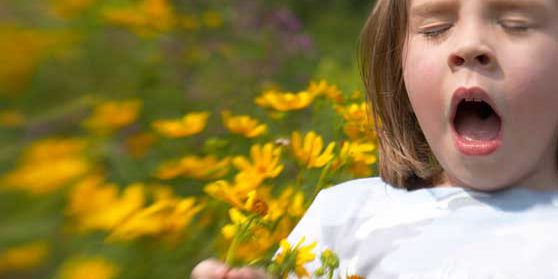The Truth about Honey and Allergies
This is our take on Honey and Allergies. Up at the farm starting at the end of winter, we have always taken a spoonful of last season’s raw Wildflower Honey every day. We use this preventative action so that when we start working outside, we don’t have severe allergic reactions to the pollen, as the flowers start to bloom. This has worked for our family for generations, so we continue the practice of eating our honey daily to prevent allergies.
We are providing you with this information, so you can make the best health care decisions for you and your family. Should you wish to adopt the same daily honey regimen our family uses to prevent allergies, we recommend using our main crop Wildflower Honey. This honey is raw, local, wild-crafted, with only the bee parts filtered from it. We believe you will get the best results by eating a spoonful of this honey every day.
The Science about Honey and Allergies
When we researched to write this post, we didn’t realize that the practice of eating a spoonful of local honey for allergy prevention was so controversial. So, we went to our Go-To-Guy, Dr. Joseph Mercola, to see what he thought of our family’s honey and allergy regimen. Here is what Dr. Mercola used a study about birch pollen honey, as an example of recent research on the effectiveness of honey on spring allergies:
This study “assessed the effects of the pre-seasonal use of birch pollen honey (birch pollen added to honey) or regular honey on symptoms and medication during birch pollen season.” One of the primary differences between these two studies is that the latter narrows it down to one specific allergen (birch).
A total of 44 patients with diagnosed birch pollen allergy consumed either the birch pollen honey or regular honey daily from November to March. The control group consisted of 17 patients who were just using their usual allergy medication to control symptoms. From April through May, the patients recorded their symptoms and use of medication daily.
The study found that, during birch pollen season, compared to the control group, the patients using birch pollen honey experienced:
- 60 percent reduction in symptoms
- Twice as many asymptomatic days
- 70 percent fewer days with severe symptoms
- 50 percent decrease in usage of antihistamines
Interestingly enough, there were few differences between the two honey groups (those who took regular honey versus those who took honey that contained birch pollen.) However, the birch pollen honey group used less histamines than those who used regular honey.
The authors concluded that:
“Patients who pre-seasonally used birch pollen honey had significantly better control of their symptoms than did those on conventional medication only, and they had marginally better control compared to those on regular honey.
The results should be regarded as preliminary, but they indicate that birch pollen honey could serve as a complementary therapy for birch pollen allergy.”
We would like to thank Dr. Joseph Mercola for his leadership in the alternative health field. QueenBee








